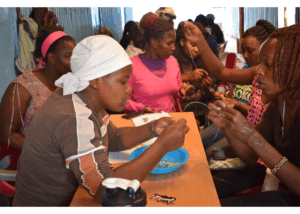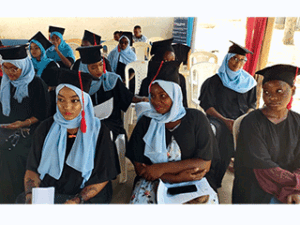Hotline: 0800 722 970
/ Info: 0708555666
- Email: info@amurtafrica.org
- Address: 209 Mountain View Estate, Nairobi
GEC-T Wasichana Wote Wafaulu (WWW) is a DFID funded project implemented by a consortium of partners led by Education Development Trust and expected to run for five years, 11 months. The other consortium partners include Ananda Marga Universal Relief Team, Kesho Organization, Concern Worldwide and WERK. The project generally builds on the initial GEC-1 WWW phased out project that aimed at improving school enrollment, retention, attendance and learning outcomes for marginalized girls in Kenya. GEC-T WWW aims at improving learning outcomes and transition for marginalized girls in Kenya.
The project is designed to remove cultural and socio-economic barriers that have prevented/ made it difficult for primary school girls in arid and semi-arid lands and urban slums in Kenya to transition to secondary schools


improving lerning outcomes for marginalized girls in Kenya
WWW project is supporting 72,000 girls in currently in primary school to complete their current phase of education, achieve improved learning outcomes and transition successfully to a productive and positive next phase.
During the year under review, ICOP project focused more on employing strategies that catalyze OVC households’ transition and graduation, galvanizing local communities’participation for OVC ownership and progressively increasing County Government responsibility of OVC care for sustainability. These strategies include; engaging local communities more often, continuous engagement of local CHVs and 11 CBOs , Intensive engagement with Siaya county Government to increase political and financial commitment for a sustainable OVC response, engaging ‘OVC HH transition/graduation’ discussions with local communities and County Children’s office, ensure collaborations with other USG & Non -USG actors, while maintaining Rights based and Gender sensitive principles aligned with PEPFAR 3.0.To this end, ICOP has been cognizant of the fact that Local community, Local Gorvernment and civil society partnerships are critical to the project success and ongoing sustainability of OVC care services in Siaya County.
The project is implemented in both Samburu and Mombasa counties:
Contextual Challenges
The design of this project has been informed by existing cultural and contextual factors that negates girls’ education in ASAL and Urban Slums

The five-year USAID-funded project started in 2021 focuses on providing HIV interventions based on UNAIDS based on UNAIDS 95-95-95 goals.

The two-year program that started in 2021 is responsible for Technical Assistance to consortium members to enhance Case Management Approach (CMA), Household Economic Strengthening, and referral systems for OVC service delivery improvement

Supported by Comic Relief, the two-year project (2020-22) that is implemented in Kilifi aims at strengthening community-based systems in improving integrated early childhood development.
Hic commodo odio pharetra magni aliquet posuere aptent mus leo class urna.
Error: Contact form not found.